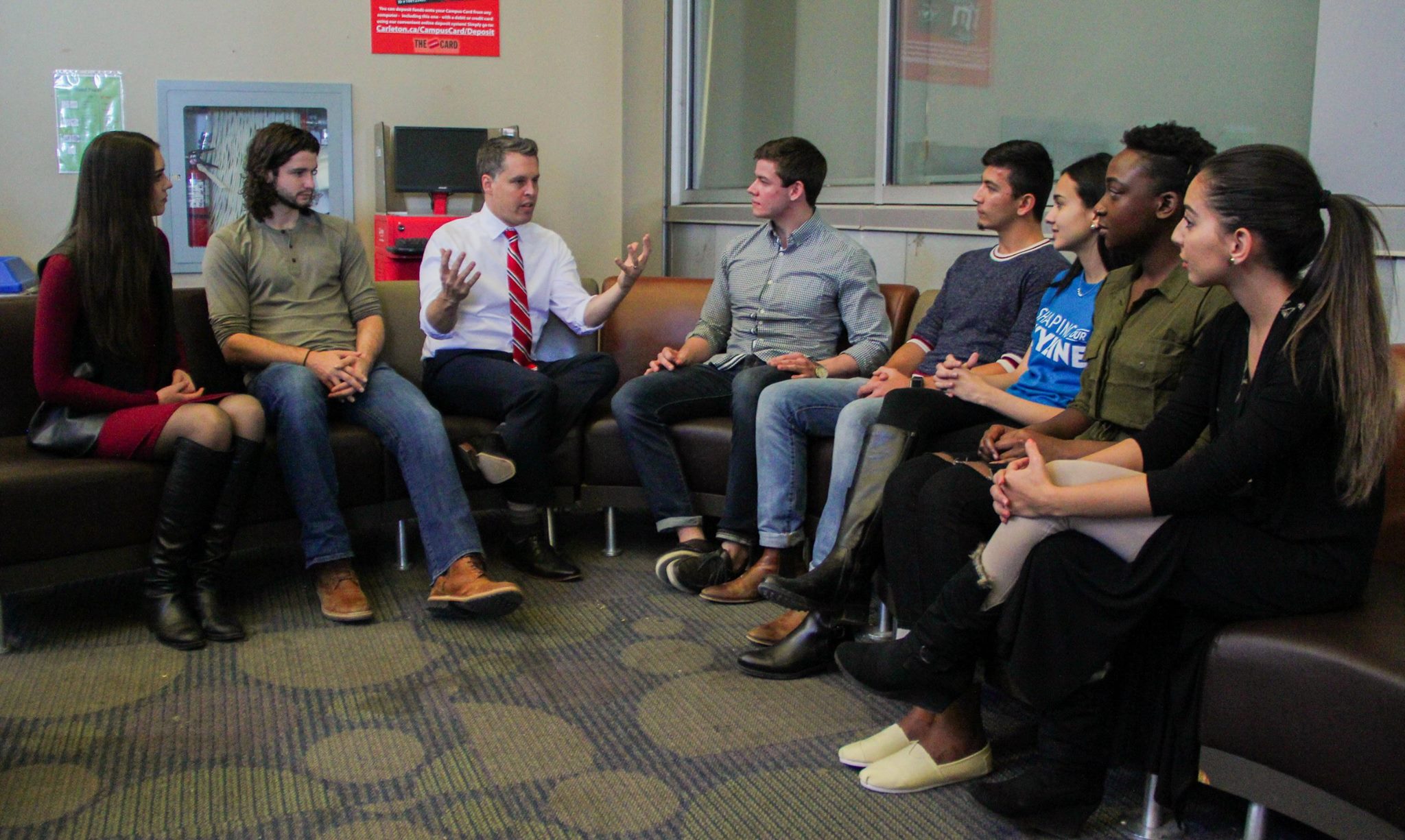Canada News
Post-secondary education getting more affordable and accessible

“It is essential that Canadians have access to the education they need, and the changes to the Canada Student Loan Program can help make that happen,” Peter Schiefke (3rd from left), Parliamentary Secretary to the Prime Minister (Youth) said. (Photo: Jobs-Emplois Canada/Facebook)
Peter Schiefke, Parliamentary Secretary to the Prime Minister (Youth), on behalf of the Honourable MaryAnn Mihychuk, Minister of Employment, Workforce Development and Labour, spoke to students and student leaders at Carleton University today about Education Savings Week. He outlined the government’s plan to introduce a fixed student contribution to determine eligibility for financial assistance through the Canada Student Loans Program, part of its commitment to strengthen the middle class, and help those working hard to join it.
“It is important to our government that youth are aware of the support available for their education and know the support does not stop once they graduate but rather continues to be available throughout their life. Whether someone wants to change jobs, or has to change jobs, it is essential that Canadians have access to the education they need, and the changes to the Canada Student Loan Program can help make that happen,” Schiefke said.
Beginning in 2017, students will only be expected to provide a fixed contribution of between $1,500 and $3,000 per academic year (based on their family income and family size).
Today marks the midpoint of Education Savings Week, and Parliamentary Secretary Schiefke highlighted the importance of planning and saving early for post-secondary education. He noted how the Government of Canada supports education savings through incentives like RESPs (Registered Education Savings Plan) and the Canada Learning Bond.
The new fixed student contribution will provide students with the simple predictability of a fixed amount to contribute towards their education costs. The simplified fixed contribution will allow low and middle income students to better save, budget, and plan for their future. They’ll no longer need to estimate their earnings or savings, and will know in advance the amount they’ll need to contribute toward their education costs. In addition, more students will be able to continue to work and gain valuable job experience without having to worry about a reduction in their level of financial assistance.
The fixed contribution will also benefit adult learners, many of whom may work while studying, or who have spouses whose resources would previously have been considered in determining eligibility.
Canadians facing barriers to employment will be exempt from making any contribution, including Indigenous students, students with permanent disabilities, students with dependent children, and current or former Crown wards.
“Education is the key to future success and prosperity. Our investments are making post-secondary education more affordable and more accessible for more students. It’s going to help grow the Canadian middle class and help Canadians get the skills and experience they need for good jobs,” Mihychuk said.
Budget 2016 provided the first significant changes to the Canada Student Loans Program since 2009. In addition to the fixed student contribution, students in Canada now benefit from a 50 percent increase to Canada Student Grants and an increase to the Repayment Assistance Plan to ensure that no borrower who applies will have to repay their Canada Student Loan until they are earning at least $25,000 per year.





















